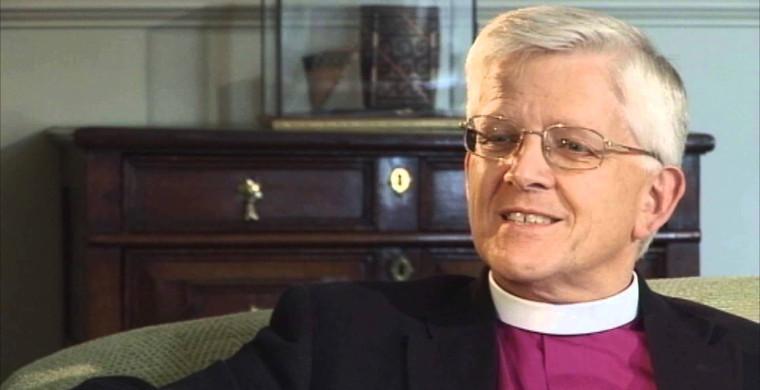CHURCH OF ENGLAND: A debate about our life as a church
By Bishop Julian Henderson
http://anglicanmainstream.org/a-debate-about-our-life-as-a-church/
Church of England Newspaper
June 30, 2016
It is with reluctance and yet conviction that I sense the need to enter the current debate about human sexuality in a more public way, but from a personal point of view, rather than with a diocesan or Church of England Evangelical Council (CEEC) mandate. The recent publication, Journeys in Grace and Truth,written in preparation for General Synod, gives an account of evangelicals who have come to view the Scriptures differently from the traditional understanding. This requires a response from those in the evangelical constituency who hold to the traditional view, so that the church can listen to all the voices in the Shared Conversations.
Three introductory things about these conversations: first, they must be clear in their use of words and terminology. Different contributors in this book use the same word to mean different things. Secondly, there must be no room for hatred, rudeness or violence towards anyone regardless of their sexuality. Legislation against those with same-sex attraction, purely on the basis of their sexuality, must be strongly opposed. The Orlando massacre is rightly to be deplored. Thirdly, the conversation must be with an open mind on all sides to hear what the Spirit is saying to the Church today through Scripture. As the Rev Dr. John Stott, that highly respected evangelical, used to say: "My endeavour is to bring out of Scripture what is there, and not to thrust in what I think might be there."
I have always said I am open to change my view, if I can be persuaded by Scripture that such a change is warranted. None of the texts I have read thus far have given sufficient evidence to prompt such a change. The main reason for that is not stubbornness or hardness of heart but that the arguments come from outside Scripture. Three emerge again and again in this recent contribution:
The Pastoral argument
The main appeal for a change in the church's teaching focusses on the responsibility to show love, welcome and compassion to all regardless of their sexual identity. The telling of stories has been at the centre of the Shared Conversations process, with the consequence that to leave the church's teaching and practice unchanged is felt by some to be uncaring, unjust and discriminatory. But this powerful voice of experience is becoming a more important driver and authority than Scripture itself in our ethical decision-making. The life of the Christian is to be fashioned by what God has revealed. We always have to make sense of our experience within some frame of reference and for the Christian that is provided by the teaching of Scripture. 'Let it be to me, according to your word' (Luke 1.38) was not an easy prayer.
The anthropological argument
A further appeal is made to the human desire for intimacy and sexual fulfilment, concluding that it is unreasonable to ask for celibacy outside heterosexual marriage. This argument fails to recognise the times when a heterosexual person has to live as a single person, or when in a marriage a couple have for a number of reasons to abstain from sexual activity. Learning to live without sex and physical intimacy is not uncommon.
Little reflection is offered in the book on the experience of those with same-sex attraction who of their own freewill choose to live a celibate life at great personal cost. The testimony of Living Out is to be admired and supported, not undermined by a suggestion that such faithfulness to Scripture is unnecessary. And of course sexual abstinence does not preclude deep friendships that give warm companionship and emotional belonging. John Stott taught unequivocally that the only alternative to heterosexual marriage is sexual abstinence. As a bachelor, he wrote: "I think I know the pain of this."
The call to deny ourselves and take up our cross is not popular these days, even though we often pray in our liturgy that we may be sent out as a living sacrifice for his praise and glory. But this is the call of Jesus.
The Missional argument
A third key argument is the concern to remain connected with our culture for the sake of mission. Believing and teaching something that is at odds with the cultural norm will, it is argued, alienate the church from our communities and therefore for the sake of sharing the Gospel and being credible, we must adopt the norm of society. The articles speak of the foolishness of defending an untenable counter-cultural position.
But the Christian community has never been called to popularity. The Gospel is an offence because of its call to repentance and because of its focus on what Jesus has done for us that we could not do for ourselves. Jesus said: "Woe to you, if all people speak well of you," (Luke 6.26). In fact he called his disciples to be different, to stand out, to be salt and light, not losing saltiness, not hiding the lamp under a bowl, (Matthew 5.13-16). Therefore, this current debate is not so much about sexuality as the place, interpretation and application of the Bible in our life as a Church. Its authority must not be superseded by pastoral, anthropological and missional arguments, if we are to maintain a faithful witness to Jesus Christ and the Gospel in this generation and for those who follow.
Bishop Julian Henderson is the Bishop of Blackburn














